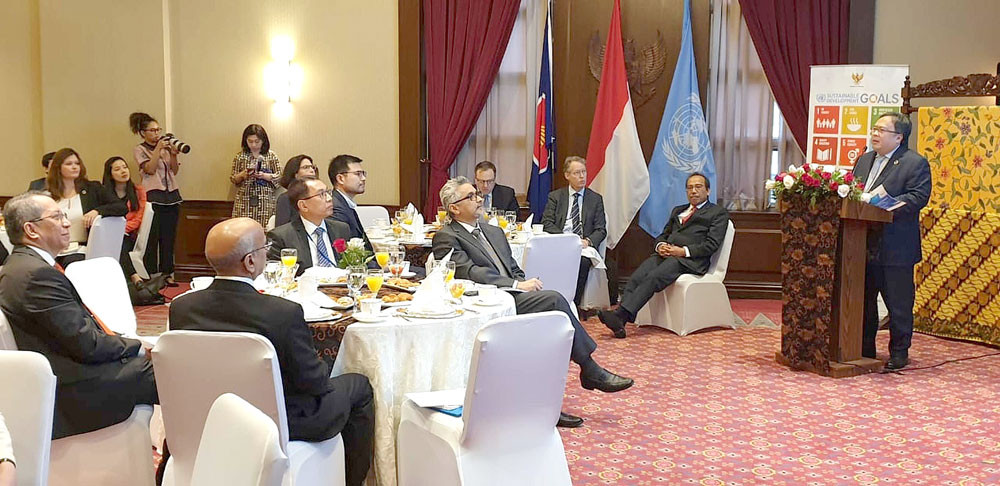Popular Reads
Top Results
Can't find what you're looking for?
View all search resultsPopular Reads
Top Results
Can't find what you're looking for?
View all search resultsSupportive rules key to Indonesia’s green investment future: Experts
Change text size
Gift Premium Articles
to Anyone
I
ndonesia needs a regulatory framework that supports its mission to attract green investment, experts say, as awareness about sustainability grows among the general public.
Green investment, as the name implies, is a form of socially responsible investing where investments are made in companies that support or provide environmentally friendly products and practices.
As more people become aware of the importance of green investing, the government faces greater pressure to change the rules to support companies following the path toward sustainability, according to the Indonesian Biodiversity Foundation (KEHATI).
KEHATI executive director Riki Frindos said there needed to be more regulations that supported environmental protections if the nation was to build up its credibility as a destination for green investment.
Global trends have shifted toward green investment, Riki said, with Google searches for environmental, social and governance (ESG) topics in financing rising tenfold between 2014 to 2019.
This is supported by a 2017 Global Investor Study by the Schroders asset management company that found that 86 percent of millennials saw sustainable investing as more important now than five years prior. Also, 70 percent of millennials have increased their investments in sustainable funds.
KEHATI itself has introduced a Sustainable and Responsible Investment Equity Index (SRI-KEHATI) that benchmarks the sustainable practices of companies in the Indonesian stock market and picks the top 25 to be included in the index.
This in turn guides would-be investors to invest in only those companies that have qualified to be green investment stocks.
The index, the only one of its kinds in the nation, has shown promising yields, having generated returns of 173.66 percent between Dec. 30, 2009 to Dec. 30, 2019.
There has also been more government acknowledgement of green investment.
The Financial Services Authority (OJK) published the Roadmap for Sustainable Finance in Indonesia 2015-2019, which defines sustainable financing as efforts, including in financial services, to mitigate the impact of climate change, among other things.
The OJK also issued OJK Regulation (POJK) No. 60/POJK.04/2017 that lays out the standards for green bonds issuance, and POJK No. 51/POJK.03/2017 that requires corporations to prove their sustainability credentials every year to the authority.
The Finance Ministry also began issuing green sukuk in 2018 to fund environmentally friendly projects, raising US$3.25 billion over two issuance periods.
But some of the government’s more recent regulatory plans threaten to undermine such efforts and could slow the momentum behind the growing green economy.
The contentious omnibus bill on job creation, for instance, looks to strip away current environmental oversight measures.
In particular, the mandatory requirement for companies to obtain an environmental impact analysis (Amdal) document to operate is targeted for removal, while most other oversight powers granted to regional administrations are to be centralized.
“If [the omnibus bill is solely] for the sake of investment and environmental protections will be loosened as a result. It could dampen the momentum we have for green investment growth,” Riki said.
Separately, the chairman of the Sustainable Trade Initiative (IDH), Fitrian Ardiansyah, said that environmental protections were an important sign that a government was “serious about wanting responsible green investments”.
While Indonesia is still considered a developing country that continues to rely on revenue for development, the government should nonetheless promote responsible investments that are conducive to conservation efforts, he said.










